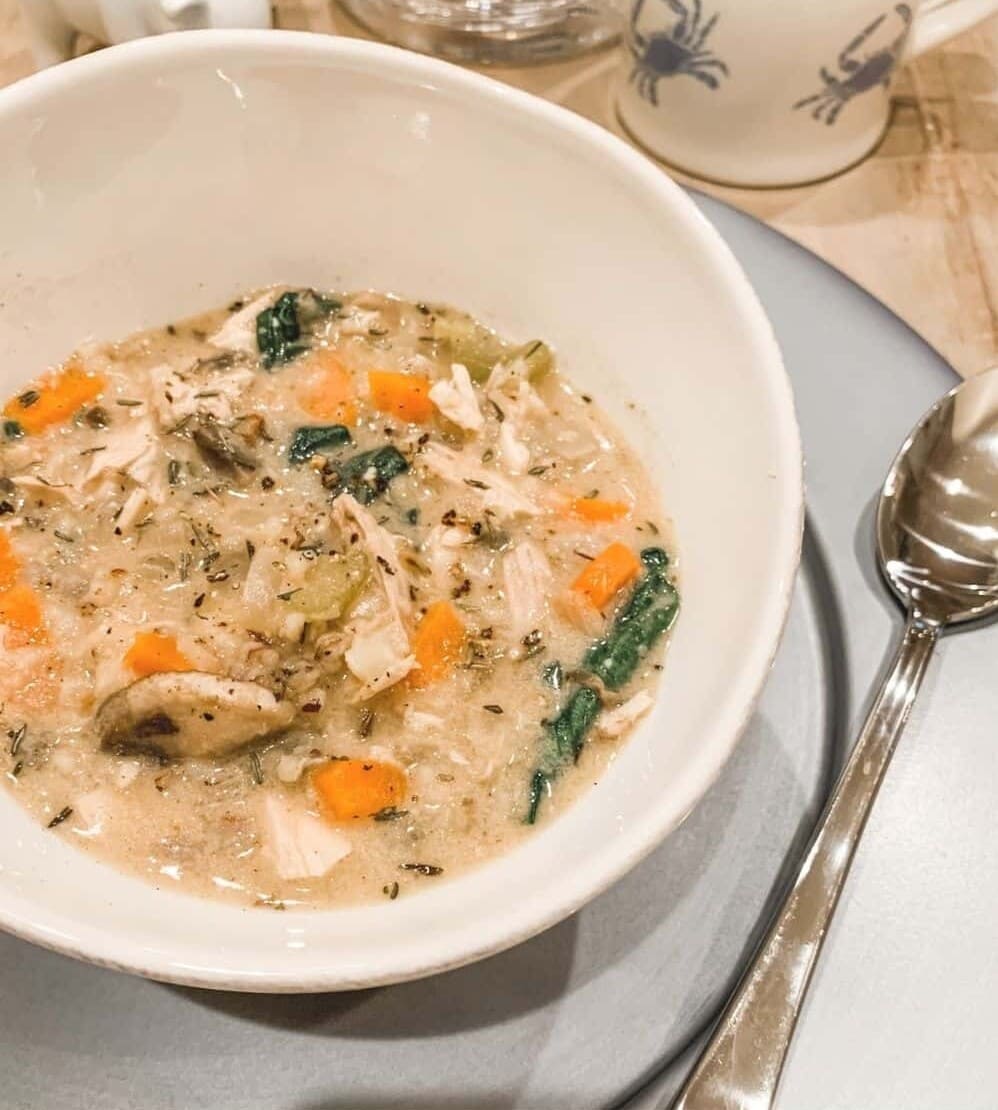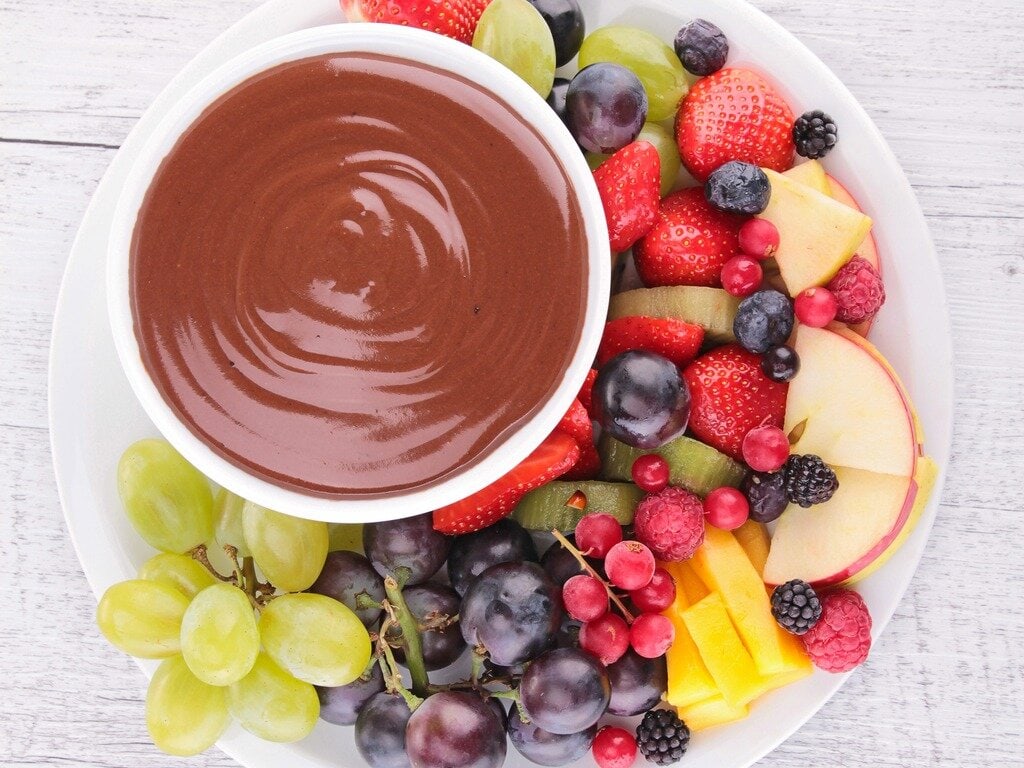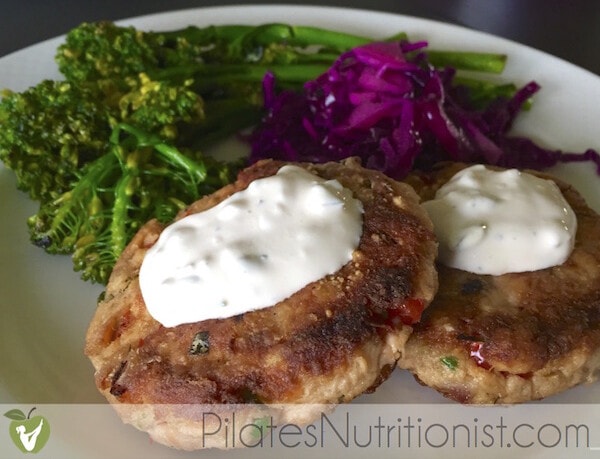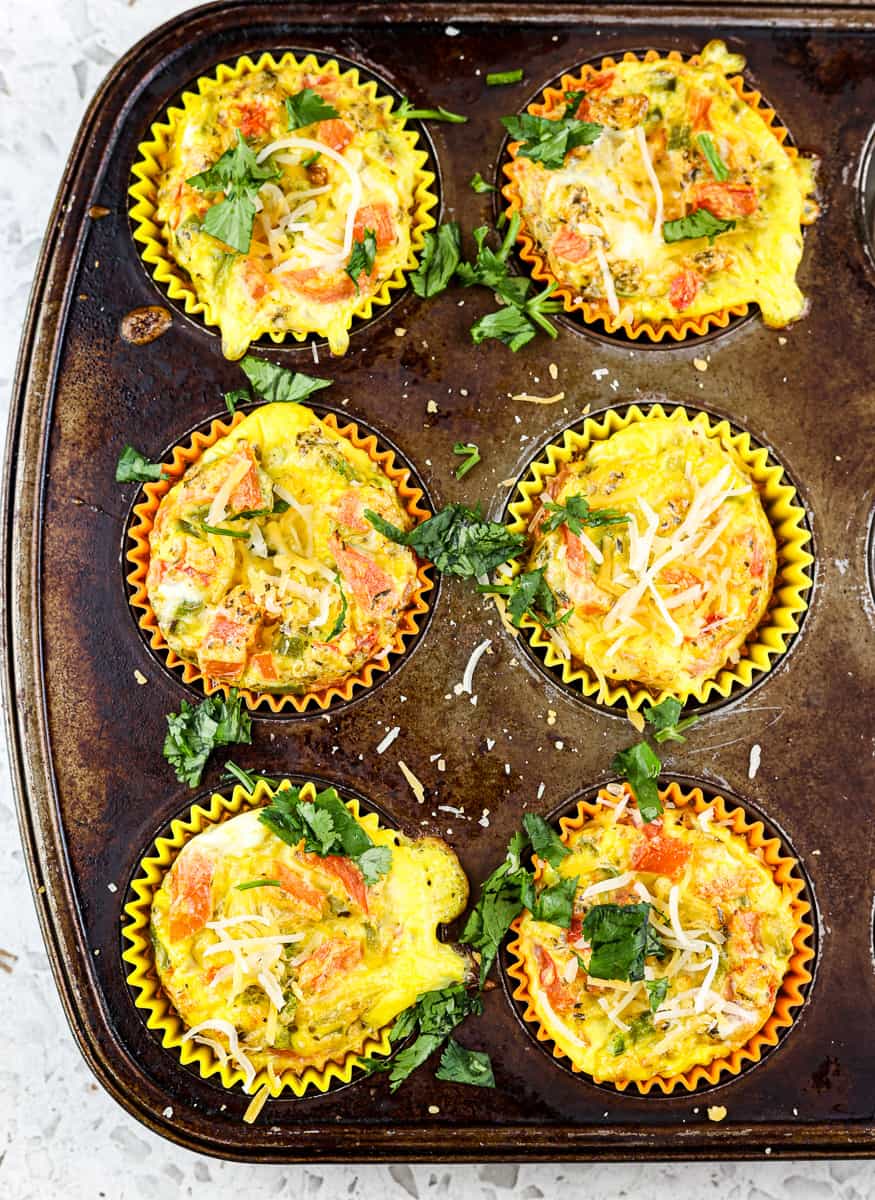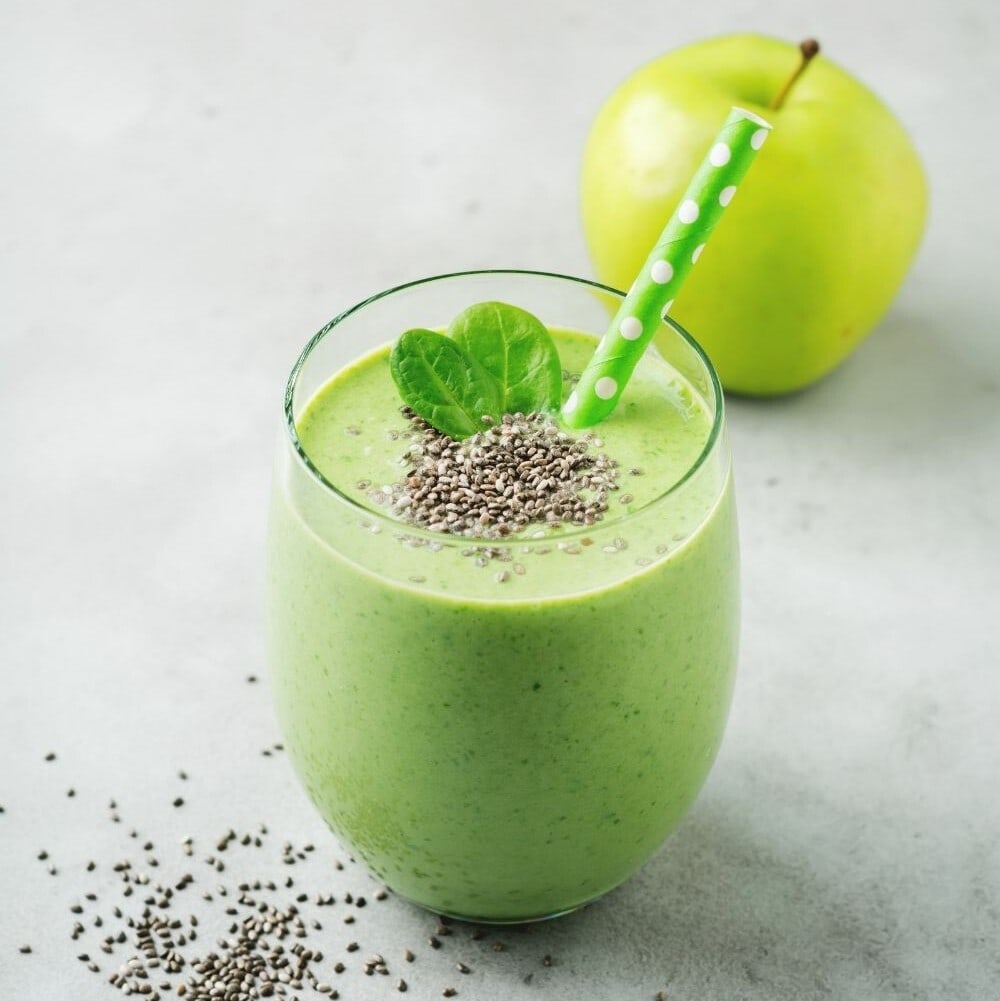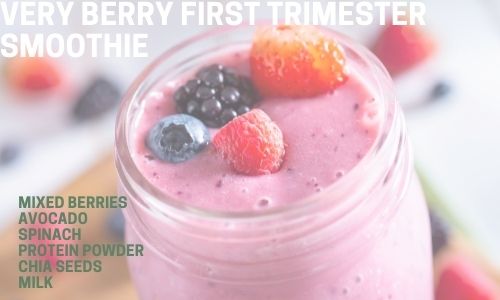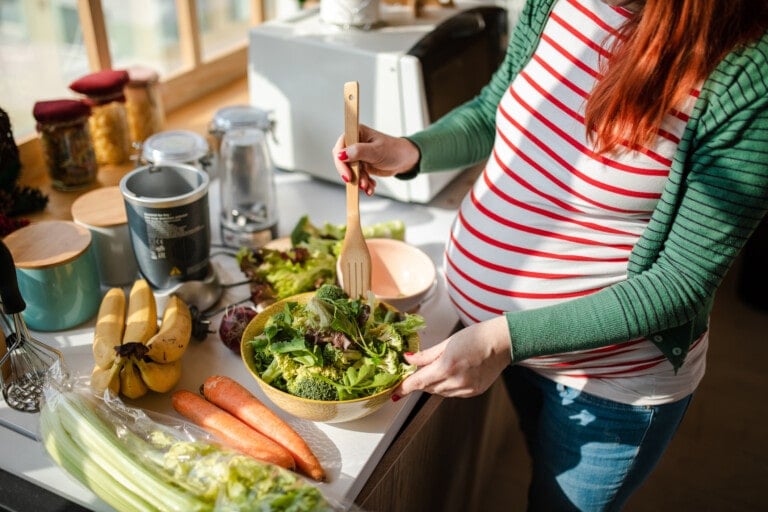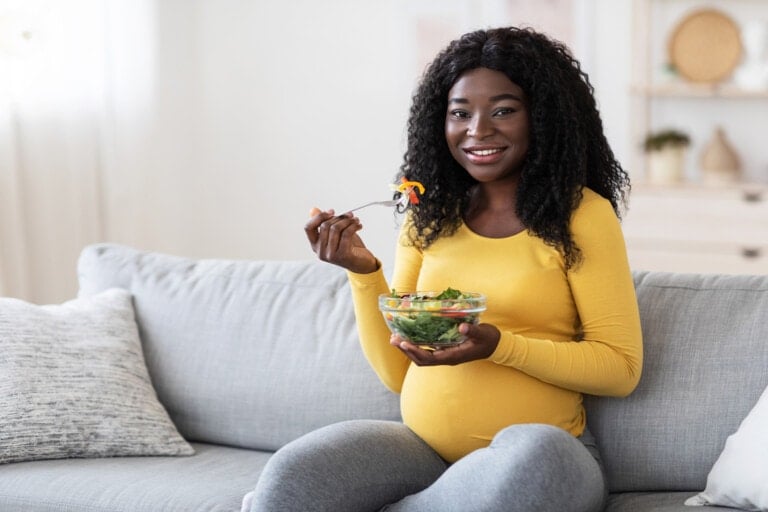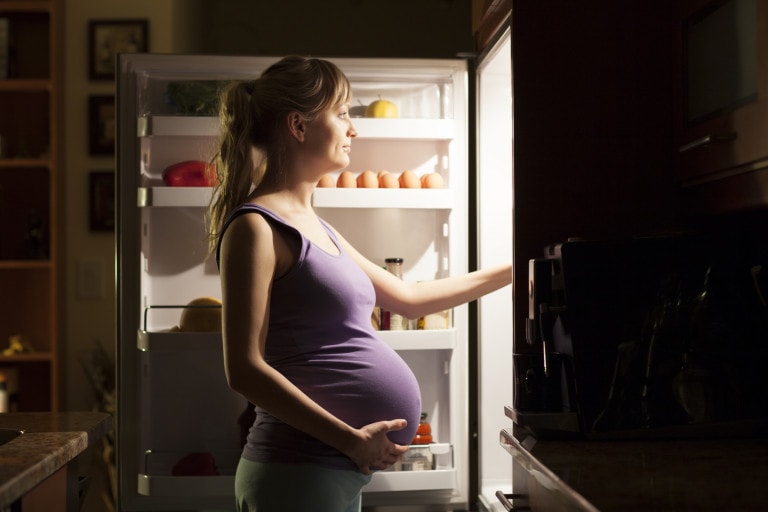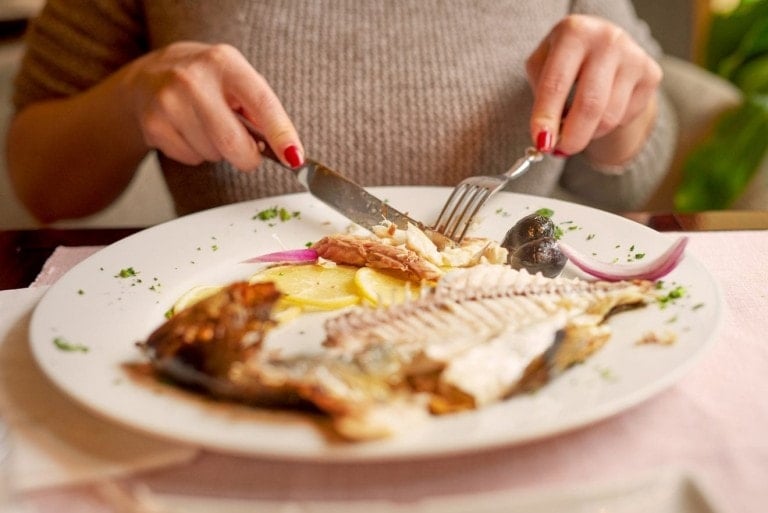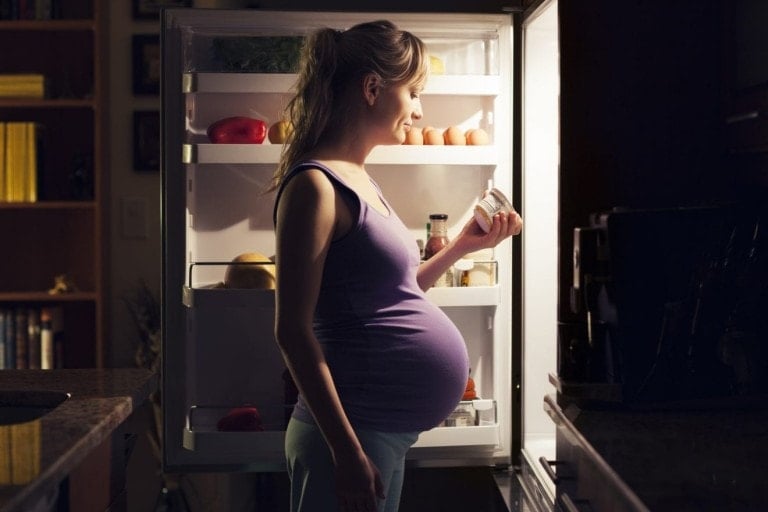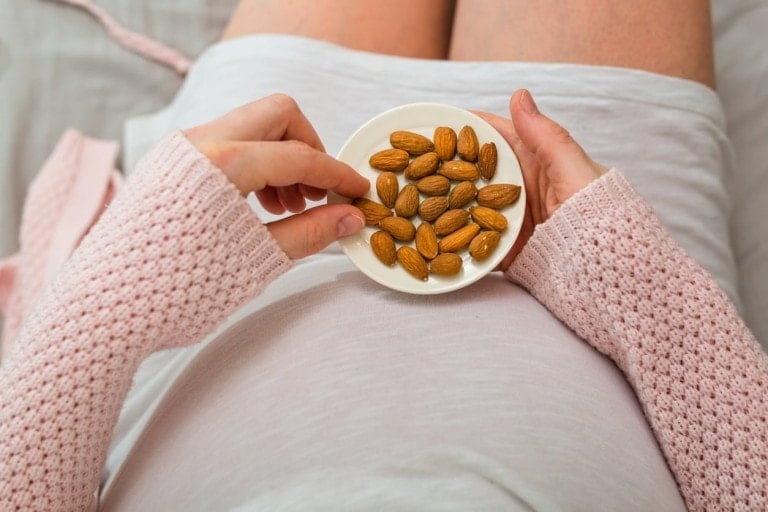Most women leave their first prenatal appointment with little nutrition advice other than to take a prenatal vitamin. So, you might wonder, what do you need to know about the best pregnancy diet? Which specific nutrients do you need? And how much should you eat during pregnancy?
Eating a well-balanced, healthy diet and engaging in regular physical activity are essential for the proper growth and development of your baby. As a new mom and registered dietitian, I know life can get hectic while preparing for a baby. I will explain what you need to know about a healthy pregnancy diet and how easy and delicious it can be to get the essential nutrients you need by sharing some of my favorite healthy pregnancy meals.
What is a Healthy Pregnancy Diet?
To obtain all the nutrients necessary for a healthy pregnancy, focus on eating a variety of nutrient-dense fruits and vegetables, wholesome whole grains, good healthy fats, and good quality protein from both plant-based and animal sources. Eating a diet rich in vitamins, minerals, and other nutrients necessary for pregnancy will help optimize your baby’s overall growth and development and help manage common pregnancy symptoms.
Here is a list of specific nutrients needed throughout pregnancy and where you can find them to add these foods to your healthy pregnancy diet.
Folate and Choline
Folate and choline are essential in your baby’s brain and spinal cord development and can help prevent neural tube defects.1,2 These nutrients are beneficial to add to your diet even before conception. The brain and spinal cord begin to develop within the first few weeks of pregnancy, before most women may even know or realize they are pregnant.
How much you need during pregnancy:3
- Folate: 600 mcg per day
- Choline: 450 mg per day
Food sources of folate and choline include:
- Eggs
- Dark leafy greens
- Fortified cereals
- Peanut butter
Calcium and Vitamin D
It is well known that calcium and vitamin D play a crucial role in proper bone development for both you and your baby.4 Vitamin D also plays a vital role in cardiovascular health and immune function, which are essential for a healthy pregnancy.5,6
How much you need during pregnancy:3
- Calcium: 1,300 mg per day for ages 14-18; 1,000 mg per day for ages 19 and older
- Vitamin D: 600 international units per day; additional supplementation may be necessary if deficient7
Food sources of calcium and vitamin D include:
- Dairy products — milk, yogurt, and cheese
- Egg yolks
- Cod liver oil and fatty fish
- Fortified orange juice
- Spinach
Iron and Vitamin C
Iron needs increase throughout pregnancy as iron supports the need for extra blood in the system and helps with the growth of the placenta and fetus.8 Vitamin C plays an active role in increasing iron absorption.9 Pairing foods rich in vitamin C alongside high iron foods helps give your body the ultimate boost.
How much you need during pregnancy:3
- Iron: 27 mg per day
- Vitamin C: 80 mg per day for ages 14-18; and 85 mg per day for 19 and older
Food sources of iron:
- Meat
- Poultry
- Beans
- Spinach
- Iron-fortified cereal and oatmeal
- Nut butter
Foods rich in vitamin C:
- Strawberries
- Tomatoes
- Citrus fruits
- Bell peppers
- Cruciferous vegetables
Protein
Protein needs increase by up to 1 ½ times during pregnancy.10 Protein is an essential macronutrient throughout pregnancy and helps support fetal growth and development. Protein also helps stabilize blood sugar levels which can help mitigate nausea and manage gestational diabetes.11
How much you need during pregnancy:30
- Roughly 79-108 grams per day
Animal-based sources of protein:
- Meat
- Poultry
- Fish
- Milk
- Cheese
- Eggs
Plant-based sources of protein:
- Beans
- Nuts
- Legumes
- Lentils
Omega-3s
Omega-3s are healthy fats that assist in the fetus’s proper brain, eye, and nervous system development.12 Newer research also suggests that increased intake of EPA (eicosapentaenoic acid) and DHA (docosahexaenoic acid) may also lower the risk of preeclampsia, be associated with an increased birth weight of baby, and be a good add-on treatment for perinatal depression.13,14,15
How much you need during pregnancy:3
- 200 mg per day of DHA
Omega-3 food sources:
- Salmon
- Sardines
- Anchovies
- Tuna
- Vegetable oils
What to Eat During Your Pregnancy
Now that you know the nutrients needed and where to find them, let’s summarize some of the best nutrient-dense foods to eat on your healthy pregnancy diet. I will also share some of my favorite healthy meals that I enjoyed during my pregnancy, and I hope you will, too!
Whole Grains
Whole grains such as oats, brown rice, and quinoa are complex carbohydrates that keep you fueled throughout pregnancy while helping you manage your blood sugar. The high fiber content of whole grains can help manage pregnancy constipation, too.
Get the Recipe HereThis yummy recipe called The Best Cozy Autumn Wild Rice Soup for Pregnancy and Postpartum uses wild rice as an excellent source of protein and fiber to provide a nourishing meal throughout pregnancy.
Full Fat Dairy
Dairy products such as milk, yogurt, and cheese are excellent sources of protein, calcium, phosphorus, and vitamin D—all essential nutrients for bone mineralization, growth, and development of your baby. As energy needs increase throughout pregnancy, whole milk and full-fat dairy products can help you meet those increased needs. Please note that if you are lactose intolerant, or have a dairy allergy, continue to avoid full-fat dairy products throughout your pregnancy.
Get the Recipe HereThese Greek Yogurt Dip Recipes are the perfect addition to a fruit or veggie snack to boost your calcium, protein, and vitamin D. Adding Greek yogurt alongside fruit or vegetables helps keep you feeling fuller and balances your blood sugar.
Beans, Nuts, Legumes
Beans, nuts, and legumes are not only excellent plant-based sources of protein, but they are also rich in iron and folate, both of which your body needs more of during pregnancy. Balancing protein, fiber, and healthy fats can also help manage your blood sugars.

This Texas Caviar Dip (Cowboy Caviar) makes for a great snack to boost your plant-based protein throughout the day. It also helps you meet your fiber goals!
Fatty Fish
Fatty fish such as salmon and sardines are excellent protein sources and omega-3s. Aim for two servings of fatty fish per week during pregnancy.
Get the Recipe HereThese Wild Alaskan Salmon Cakes were a fun way to change my salmon intake from week to week and are a great way to get in those omega-3s.
Eggs
Eggs are not only a high-quality protein but also rich in fats and choline, both of which are essential for a baby’s brain and neural tube development. One egg contains roughly 150 mg of choline, one-third of the recommended daily intake of 450 mg.16,3
Get the Recipe HereAre you tired of the simple scrambled egg, or do you not have enough time to make eggs in the morning? These Southwestern Egg Frittatas are easy to prep and take on the go for a boost of choline throughout your pregnancy.
Avocado
A fruit high in healthy fats, avocados are an excellent food to add to any meal or snack. They are high in fiber, folate, and potassium, all of which make for a healthy pregnancy.
Get the Recipe HereThis recipe, dubbed the ultimate morning sickness smoothie, uses avocado to help stabilize your blood sugar and lessen any nausea you may experience during the first trimester.
Berries
Rich in antioxidants, high in fiber, and water, berries are an excellent nutrient-dense food to pair with some nuts as a healthy snack.
Get the Recipe HereThis Very Berry First Trimester Smoothie recipe here can be enjoyed throughout pregnancy as a refreshing snack or mini-meal.
Dark Leafy Greens
Dark leafy greens are packed with vital nutrients for a healthy pregnancy. Calcium, iron, vitamin C, and folate are only a few essential nutrients you will find in these nutrient-dense foods.
Get the Recipe HereCheck out this Kale Salad with Quinoa to boost greens alongside some healthy fats and protein.
Foods to Avoid in Your Pregnancy Diet
When discussing diet and pregnancy, the focus often lies on the “foods to avoid” list. While some foods and beverages should be avoided during pregnancy, others may be consumed occasionally or cooked in a particular way for you to enjoy. Here, we’ll dive into the foods to avoid during pregnancy and some of the research behind the recommendations.
Deli meat and soft cheese
Deli meats and soft cheeses such as blue cheese and brie have the potential to contain listeria. Although rare, listeriosis has been associated with an increased risk of miscarriage and stillbirth.17 Avoiding soft cheeses throughout pregnancy and heating deli meat sandwiches until steaming hot (165 degrees Fahrenheit) can help decrease your risk of listeriosis.
High mercury-containing fish and seafood
Mercury is a well-known neurotoxin that can build up in your bloodstream during pregnancy which could cause damage to your baby’s developing brain and nervous system.18 While all fish contain some levels of mercury, large fish such as king mackerel, swordfish, shark, and tilefish contain the highest levels and should be avoided. White (albacore) tuna contains moderate levels of mercury and should be limited to 6 ounces per week or less.
Sushi and raw fish
Sushi, raw fish, and uncooked shellfish have the potential to carry parasites and other harmful bacteria that cause foodborne illnesses.19 During pregnancy, women are at an increased risk for foodborne illnesses due to a lessened immune system.20 Foodborne illnesses during pregnancy may cause an upset stomach, nausea, vomiting, diarrhea, or severe health problems such as miscarriage, premature delivery, or stillbirth.
Raw eggs
Eggs are one of the most common causes of Salmonella infection.21 It is recommended to avoid raw or undercooked eggs during pregnancy, including foods that often contain raw eggs, such as mayonnaise, Caesar dressing, cookie dough, and cake batter. Enjoy your eggs scrambled or fried and your cookies and cakes baked!
Unpasteurized Milk and Fruit Juice
Although full-fat dairy products can provide a variety of essential nutrients during pregnancy, it is important to avoid unpasteurized products as they can potentially contain harmful bacteria. Eat only pasteurized milk, cheese, and fruit juice during pregnancy.
Caffeine
It is well known that caffeine crosses the placenta to your baby.22 Current recommendations are to limit caffeine intake to less than 200 mg of caffeine per day. One study found that high caffeine intake was associated with an increased risk of miscarriage and restricted fetal growth.23 Additionally, newer research suggests that no caffeine consumption may be safe. Even moderate levels of less than 200 mg per day may lead to smaller birth sizes and other pregnancy-related complications.24,25
Alcohol
It is recommended to avoid drinking alcohol throughout pregnancy. Alcohol has been found to increase the risk of miscarriage and stillbirth and impact the baby’s overall brain development.26,27
Unwashed Fruits and Vegetables and Raw Sprouts
While fruits and vegetables are essential food groups to include in your pregnancy diet, we must note the importance of washing your fruits and vegetables before eating.28 Harmful bacteria can be housed on the outer rind or peels of fruits and vegetables and should be rinsed under clean running water to reduce your risk of foodborne illnesses.
While you can wash and remove the bacteria from fruits and vegetables, bacteria that grow within raw sprouts are nearly impossible to wash away and should be avoided during pregnancy.29
Your Pregnancy Diet Plan
Now that you know the specific nutrients needed during pregnancy, which foods to eat, and what foods to avoid throughout pregnancy, you might be wondering—how do I put this all together, and how much should I eat?
Each body is beautifully unique, and there is no one size fits all. Your pregnancy diet plan will vary based on your pre-pregnancy weight, physical activity levels, and overall health status. Use the guidelines below as a starting point and work with your healthcare provider or a registered dietitian to determine your unique needs.
Calorie Needs During Pregnancy
Starting calorie recommendations vary from 1,800-2,600 calories per day depending on age, weight, and physical activity.3 As pregnancy progresses, your calorie needs increase. The conventional recommendations are as follows:
- 1st trimester: No caloric increase
- 2nd trimester: Additional 300-350 calories per day
- 3rd trimester: Additional 450-500 calories per day
Macronutrient needs during pregnancy
Carbohydrates
Carbohydrates typically account for 50-60% of your daily calories for most Americans. Most important is to focus on getting carbs from whole grains, beans, nuts, fruits, vegetables, and dairy sources. Limit processed, refined grains, and added sugars. Aim for 25-35 grams of fiber per day during pregnancy.3
Protein
As mentioned above, your protein needs increase throughout pregnancy too. Focus on consuming a variety of protein sources from both plants and animals. Aim for about 75 grams per day during early pregnancy and about 108 grams per day later.
Fat
During pregnancy, your body needs more fat. Depending on your carbohydrate intake, you should aim to consume 25-35% of your calories from fat. Focus on healthy fats such as salmon, avocado, olive oil, and walnuts.
The best diet for pregnancy includes eating a balanced diet rich in whole grains, a variety of nutrient-dense fruits and vegetables, healthy fats, and protein from animal and plant-based sources. Rather than focusing on restrictions and foods, you need to avoid or limit throughout pregnancy, focus on nourishing foods that you enjoy. Eating a healthy pregnancy diet will not only lessen common pregnancy symptoms for you but will give your baby the best start in life and have long-lasting effects on your baby’s overall health. Here’s to a happy and healthy pregnancy journey!














